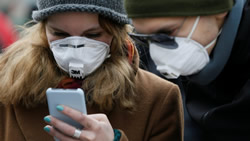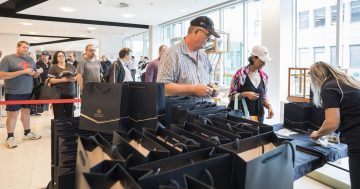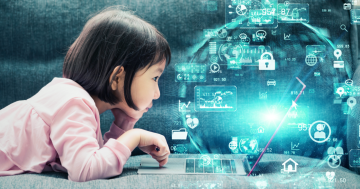Dan Schawbel* says while Gen Z (1995-2010) workers have been most affected by the pandemic, they also hold the key to unlocking a better, brighter future in its aftermath.
 The COVID-19 pandemic has been the biggest disrupter in our lifetimes, impacting almost every person on the globe.
The COVID-19 pandemic has been the biggest disrupter in our lifetimes, impacting almost every person on the globe.
The older you are, the more likely you are to have gone through enough crises in the past to be able to adjust, adapt, and manage through this one.
Baby Boomers have endured wars, social and political change, and terrorism.
It could be inferred that Boomers are built to handle this pandemic more than the younger generation, but you also have to consider that they are the most susceptible to both contracting and dying from the virus.
From a work perspective, some Boomers already on the path to retirement have accelerated that decision, while others have had to delay their retirement because they lack the financial cushion to do so.
Those Boomers who lost their jobs over the past several months will struggle to get new ones because of age discrimination.
Similar to Boomers, Gen X has experiences that enable them to handle the safety precautions of the pandemic like self-isolation.
Gen Xs were known as the ‘latchkey generation’, where they would stay at home alone waiting for their duel income-earning parents to get out of work.
Now, they have to worry about their Gen Z kids who are out of school, experiencing distance learning or home-schooling.
While self-isolation isn’t as big of a deal to them, being isolated with their kids for long periods of time can cause them anxiety.
Similar to Gen X, Millennials have had kids of their own (Gen Alpha) and the pandemic has accelerated their relocation out of cities and into suburbs to have more space to raise them while saving money.
They’ve already gone through the recession of 2008 and continue to struggle to catch up.
Like Gen X, they are concerned about their aging parents and an uncertain future as they try to raise their children and maintain their remote jobs.
Similar to Millennials, the older Gen Zs have concerns about their work-life and family.
Although they may be the least susceptible to a COVID-19 infection, they have arguably been most disrupted during the pandemic.
This period of time for Gen Z is perhaps the most important for their personal and professional development, which can have a longer impact and repercussions.
About one-third of Gen Zs describe the pandemic as being “extremely negative”, which is double that of Baby Boomers.
This pandemic may define Gen Z as a whole and leave a permanent scar on their lives because they haven’t made a smooth transition into adulthood.
COVID-19 has upended every aspect of their life and changed how they see money, relationships, family, health, and education.
Nearly one-third of Gen Zs lost a job during the pandemic compared to 19 per cent of Millennials, 18 per cent of Gen X, and 13 per cent of Baby Boomers.
Gen Zs have suffered the highest job losses because they are disproportionately in industries (like retail or the service sector) that have had the most lay-offs.
They are more likely to be in entry-level jobs and work as casuals.
All of this unemployment has impacted Gen Zs’ lifetime earnings.
Since they are unemployed, they lack the ability to develop the on-the-job skills that would be an important investment for their future.
Further evidence proves this with 69 per cent of Gen Zs expecting to delay some life milestones even though 87 per cent crave financial independence.
Before the pandemic, my research found that younger generations were the most interested in work flexibility, while older generations were more likely to have flexibility.
Yet, during this pandemic younger generations have had a more pessimistic view of remote work than their elders.
Even though younger generations are more likely to desire remote work, the majority of Gen Z (95 per cent) and Millennials (93 per cent) have had difficulty with remote working during the pandemic.
Compared to Gen X and Baby Boomers, these younger generations report feeling less connected and less informed about what’s going on with their employment.
They say that video calls have hurt their productivity, and have had difficulty working with their colleagues from a distance.
The other consideration is that for many Gen Zs this is their first real work experience and it’s not a typical one.
Before the pandemic, most of the on-boarding was in-person, whereas now Gen Zs are starting off with less of a connection to their team and employer.
This will have ramifications when it comes to turnover and engagement.
While I empathise with Gen Z, I’m optimistic and intrigued by how they will reshape and restructure our lives in the future.
They already account for an entire third of the global population and are the most educated, diverse, and technologically adept generation we’ve ever seen.
Gen Zs’ biggest impact on the workplace will be forcing institutions to focus on a societal purpose and follow that purpose with tangible actions that benefit society as a whole.
This pandemic has reinforced Gen Zs’ socially conscious mindset and agenda, accelerating their plea and protest for institutions to create policies for lasting change.
This is why Gen Z holds the keys to unlocking a better, and brighter, future for us all.
It’s our responsibility to support this generation now so that it can provide the future leaders we will need to survive as a species.
*Dan Schawbel is a best-selling author and the Managing Partner of Workplace Intelligence, a research and advisory firm helping HR adapt to trends, drive performance and prepare for the future.
A fuller version of this article appeared on LinkedIn.











